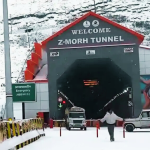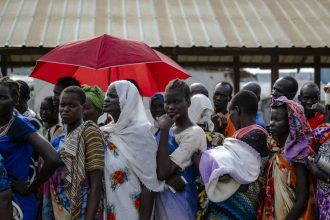BEIJING: The number of people injured in Tibet’s deadly earthquake nearly doubled on Friday as rescue teams expanded their search for survivors in a remote area near the Himalayas, despite diminishing hopes of finding those trapped under the rubble.
According to the state-backed Global Times, the magnitude 6.8 earthquake has now left 337 people injured, a significant increase from the initial estimate of 188 reported on Tuesday. The death toll remains at 126. While the number of missing individuals remains uncertain, experts warn that those still trapped are likely to have succumbed to hypothermia due to the harsh conditions.
Temperatures in the region drop to as low as -15°C at night during this time of year, excluding wind chill, compounding the already dire situation.
Over 1,600 aftershocks have shaken the disaster zone, making it increasingly difficult to move the more than 47,000 displaced people into temporary shelters.
“Make sure no one is left behind!” declared the Tibet Daily, as the Communist Party’s top regional official swiftly responded to the crisis, taking action within just 30 minutes of the earthquake.
This catastrophe is Tibet’s most severe disaster in years, presenting significant challenges for authorities in their efforts to rescue those trapped, recover the bodies of the deceased, and provide shelter for the tens of thousands displaced.
Wang Junzheng, the region’s party secretary, visited the hardest-hit areas in Tingri County, the epicenter of the earthquake. In a poignant moment, elderly locals greeted him with traditional Tibetan gestures of respect, shedding tears as they held his hands.
Many local officials, including grassroots cadres, joined the relief efforts, despite their own homes being destroyed. They helped sift through the rubble and guard resettlement areas.
In response to the crisis, Chinese President Xi Jinping convened a meeting with senior party officials to coordinate disaster relief efforts. According to Xinhua, top leaders emphasized the need to ensure a swift recovery and urged rapid rebuilding, with a focus on enhancing the region’s resilience.
As the crisis continues, authorities face the long-term challenge of providing permanent housing for the displaced, moving beyond temporary shelters such as tents, and ensuring a reliable supply of essential goods.
To assist in the recovery, the government has already dispatched 743,000 tonnes of essential supplies, including grain, cooking oil, and fresh meat. An additional 2,000 tonnes of frozen pork, along with 1,600 tonnes of frozen beef and mutton, are ready for delivery to those in need.








